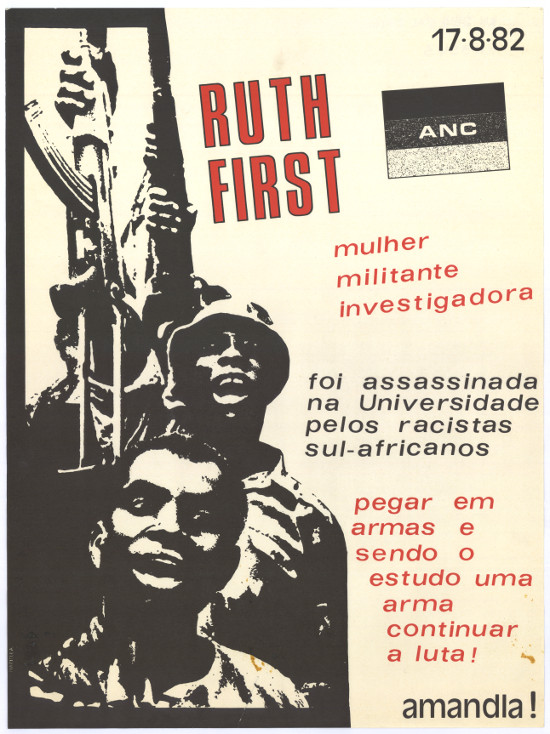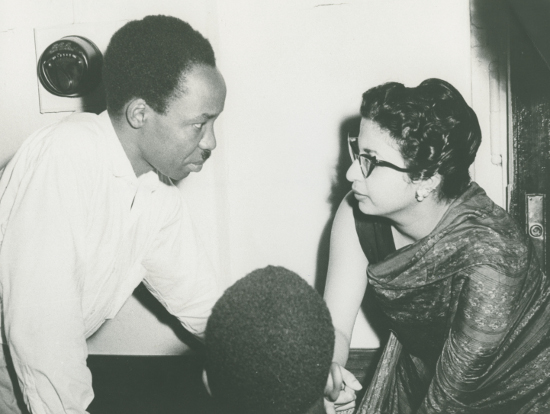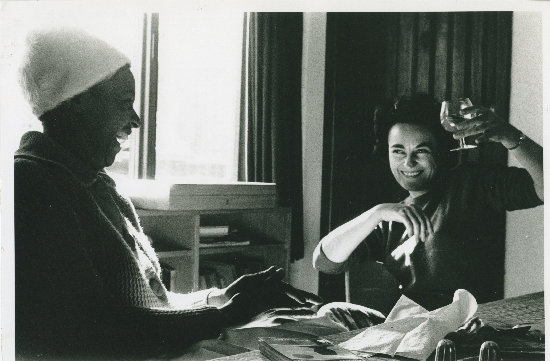 These unjust pass laws continued to be challenged by black people in South Africa. Political organisations such as the ANC and the PAC began to organise protests against the pass laws. On the 21st March 1960, members of the PAC planned to march peacefully to the local police station at Sharpeville. Using the methods of non-violent protest, the protesters aimed to hand in their passes and offer themselves up for arrest. The police fired on the large crowd, killing 69 and wounding 180 people.
These unjust pass laws continued to be challenged by black people in South Africa. Political organisations such as the ANC and the PAC began to organise protests against the pass laws. On the 21st March 1960, members of the PAC planned to march peacefully to the local police station at Sharpeville. Using the methods of non-violent protest, the protesters aimed to hand in their passes and offer themselves up for arrest. The police fired on the large crowd, killing 69 and wounding 180 people.
Sharpeville is seen as a major turning point in the struggle against apartheid.
The apartheid government imposed a state of emergency and banned the ANC and the PAC. Both the ANC and the PAC decided to embark on an armed struggle. They both formed military wings – the ANC formed Umkhonto we Sizwe and the PAC formed Poqo. Both were prepared to use sabotage and violence to overthrow the apartheid government.
Leading women
Frene Ginwala, Winnie Madikizela-Mandela and Ruth First are all examples of women who played prominent roles in this escalating struggle against apartheid in the wake of the Sharpeville Massacre.
Frene Ginwala
 On the eve of the Sharpeville protest, Walter Sisulu asked Frene Ginwala to help organise Oliver Tambo's departure from South Africa. The ANC had decided to smuggle its deputy president out of the country into Tanzania ahead of what seemed like its inevitable banning.
On the eve of the Sharpeville protest, Walter Sisulu asked Frene Ginwala to help organise Oliver Tambo's departure from South Africa. The ANC had decided to smuggle its deputy president out of the country into Tanzania ahead of what seemed like its inevitable banning.
In exile, Ginwala sounded out the incoming Tanzanian leader-to-be Julius Nyerere: would they accept the establishment of an ANC extenal mission in their country? The ANC engaged Ginwala to establish the ANC's department of information and publicity. Her work included journalism and university lecturing, with published research into women and development studies and societies inconflict. She served as speaker of parliament for the first ten years of democratic rule in South Africa 1994-2004.
 Ruth First
Ruth First
After the state of emergency following the Sharpeville Massacre, Ruth First was banned. In 1963, she spent 117 days in solitary confinement, making her the first white woman to be detained under the 90-day detention law. Ruth First went into exile where she was active in the anti-apartheid movement. In Novenber 1978 she took up a reaserch position at a University in Mozambique. Here she was assassinated by order of Craig Williamson, a major in the South African Police, on the 17 August 1982 when she opend a letter bomb.
Winnie Madikizela-Mandela
Married to the leader of Umkhonto we Sizwe (armed wing of the ANC) Nelson Mandela, Winnie Madikizela-Mandela spent the better part of 27 years confined to live in the town of Brandfort in the Orange Free State. In 1969, she spent 18 months in solitary confinement at Pretoria Central Prison. Madikizela-Mandela was elected president of the ANC Women's League when it was re-launched in December 1993.
Exhibitions in the classroom
Reading the past
SOURCE: ‘Sharpeville, 21 March 1960’ – Defend UDF Committee pamphlet, date unknown.
Read the clipping on Sharpeville and answer the questions.
1. What actions did the apartheid government take in response to the Sharpeville Massacre?
2. Why do you think the government acted in this way?
3. Find evidence from this clipping that suggests that it is biased in favour of the ANC?
Reading the past
SOURCE: Leading women (text above).
Frene Ginwala, Winnie Madikizela-Mandela and Ruth First are examples of women who played prominent roles in the escalating struggle against apartheid in the wake of the Sharpeville Massacre. Each of them made enormous personal sacrifices in order to take up this struggle.
Read their short biographies and then fill in a table that looks likes this:
|
|
Political actions |
Personal sacrifices |
|
Frene Ginwala
|
|
|
|
Winnie Madikizela Mandela
|
|
|
|
Ruth first
|
|
|
Learning more
Discover how other leading women in South Africa have been memorialised on the
SAHA / Sunday Times Heritage Website – http://sthp.saha.org.za


